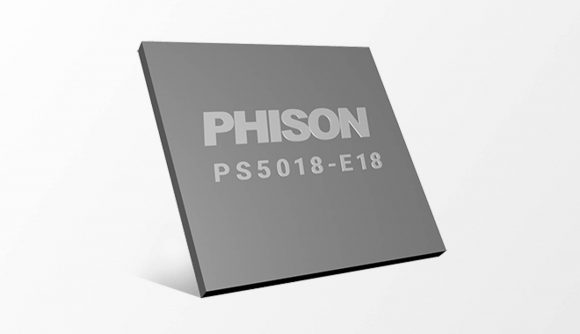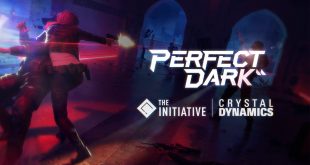While we were at Computex earlier this year, we heard rumblings from a few sources that the current batch of super-fast PCIe 4.0 SSDs were just the beginning. We were told at the time that a next-gen Phison SSD controller was already in the works, which would push speeds beyond the 5,000MB/s speeds we are currently seeing. Today, that next-gen Phison controller was confirmed and announced.
Phison announced its PS5018-E18 NVMe SSD controller today, a step above the E16 controller currently found on many PCIe 4.0 SSDs. The new controller is designed on the 12nm process node and will enable sequential read and write speeds of up to 7,000MB/s, another huge speed boost. Beyond that, this controller will also support capacities up to 8TB.
As you might expect, these speeds will only be possible via PCIe 4.0, so you will need a motherboard that supports that. Currently, only AMD's X570 motherboards utilise PCIe 4.0, although we'll likely see Intel make the jump too, hopefully in the not too distant future. There is also the issue of cooling, as M.2 SSDs can get quite hot and will thermal throttle to stay within safe parameters. As speeds continue to climb, we are also going to need to see more focus placed on M.2 SSD cooling in order to maintain these high speeds.
Currently, we are expecting SSDs equipped with this new controller to arrive at some point in 2020.
KitGuru Says: SSD and PCIe development seem to be blazing ahead at the moment. PCIe 4.0 is already getting off the ground, but PCIe 5.0 is already well on its way and the target spec for PCIe 6.0 has already been announced. With that in mind, I expect we'll be seeing even more SSD improvements over the next few years.
 KitGuru KitGuru.net – Tech News | Hardware News | Hardware Reviews | IOS | Mobile | Gaming | Graphics Cards
KitGuru KitGuru.net – Tech News | Hardware News | Hardware Reviews | IOS | Mobile | Gaming | Graphics Cards



